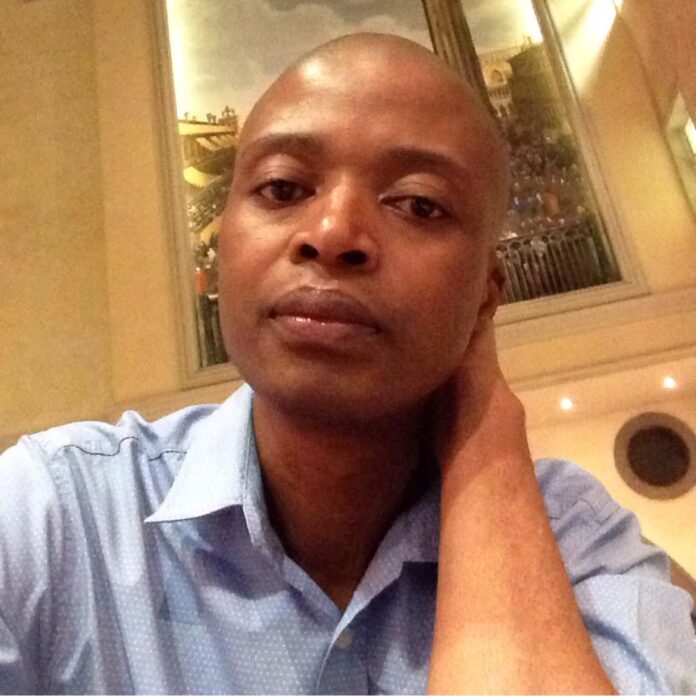Former Sunday World journalist Mduduzi Dlamini, 55, was laid to rest in his KZN hometown of Pietermaritzburg on Saturday.
Dlamini was known as a go-getter who reported about South African celebrities.
Assaulted and left for dead
Sunday World has established that Dlamini was attacked by unknown assailants earlier this year in Soweto. He was later admitted to a Gauteng hospital. After his discharge, he moved back home in Pietermaritzburg to recuperate. His condition later worsened, and he died on November 15.
Sunday World acting editor Ngwako Malatji said: “Former Sunday World journalist Charles Molele was the inventor and architect of ShwaShwi. But Mduduzi Dlamini took it to another level. We are saddened by his sudden departure. Our industry is poorer without him. May his soul rest in eternal peace.”
Gifted writer
City Press managing editor Mapula Nkosi said it was awe-inspiring to watch Dlamini work.
“Not only was he a gifted writer, but he was also highly resourceful and well-read. He read about literature and all arts and culture genres, especially music. And he did not leave a story until he fitted all the pieces together,” said Nkosi.
“I will always remember his brilliant mind. He was one of the most reliable writers in the newsroom. Though he was highly temperamental. He would upset fellow colleagues when he pointed out the truths no one else wanted to,” said Nkosi.
A trail-blazer with a passion for journalism
Former Sunday World journalist and now a PR practitioner Sonia Motaung said Dlamini was a trail blazer. He had a passion for his work and was relentless in pursuing a story a story.
“Mduduzi didn’t mind using big words. Someone who had no fear about tackling what made many shudder. May his soul rest in peace,” said Motaung.
Former colleague, Maseipati Tsotsotso, said: “I interacted a lot with him while I was a sub-editor and he a tabloid writer. This was at Sunday World in Rosebank back then. He came across as blunt, and never minced his words. Mdu was fearless. He stepped on a number of toes in his quest for the truth. And he was feared by many celebrities for daring to tell their stories.
“Many loved to hate him, and Mdu simply did not care. I used to find that quite intriguing about him. He dared to go after the untouchables. Such a loss to the craft.”
Gave everything to journalism
Former editor Japhet Ncube, said: “Together with Charles Molele and Sonia Motaung, they made the Charles Mogale-edited Sunday World the best tabloid. In South Africa and neighbouring countries. He was the equaliser. Because he had no favourites — he wrote about every celebrity. They loved to hate him, but he was unbothered,” said Ncube.
Former colleague Bongani Madondo said: “He was a rock star and a thorn in the side of celebrities. Flakey ones and the real McCoys. Mduduzi was totally self-taught, which helped him in his free-wheelin’ kind of journalism. But he was also erudite. A weird combo: intellectual as a celebrity stalker. Think of New York Post’s Page 6 gossip journalist as Ron Gallela as Peter Breslin. That’s Mdu. His legacy lives on.”
Loss to journalism
Themba Mathe said: “Our paths first crossed in 1997 at the Joburg City Library. The place was a cultural and intellectual epicentre at the time. It was buzzing with energy, rainbow promise, and the spirit of a cultural revolution. That was where Mdu introduced himself as a writer. He viewed writing as an art form. A sacred calling to translate thought, emotion, and knowledge into something profound. In his own words: ‘It was a war’.”
The South African National Editors’ Forum (Sanef) said also paid tribute.
“Dlamini was a trailblazer in arts, culture, and fashion reporting. He was a dedicated journalist who embodied the ethos of the “3 AM school of journalism”, a nod to British reporters who worked tirelessly to secure exclusive stories before the day broke,” said Sanef.
Dlamini was laid to rest on Saturday in Pietermaritzburg.
Visit SW YouTube Channel for our video content



